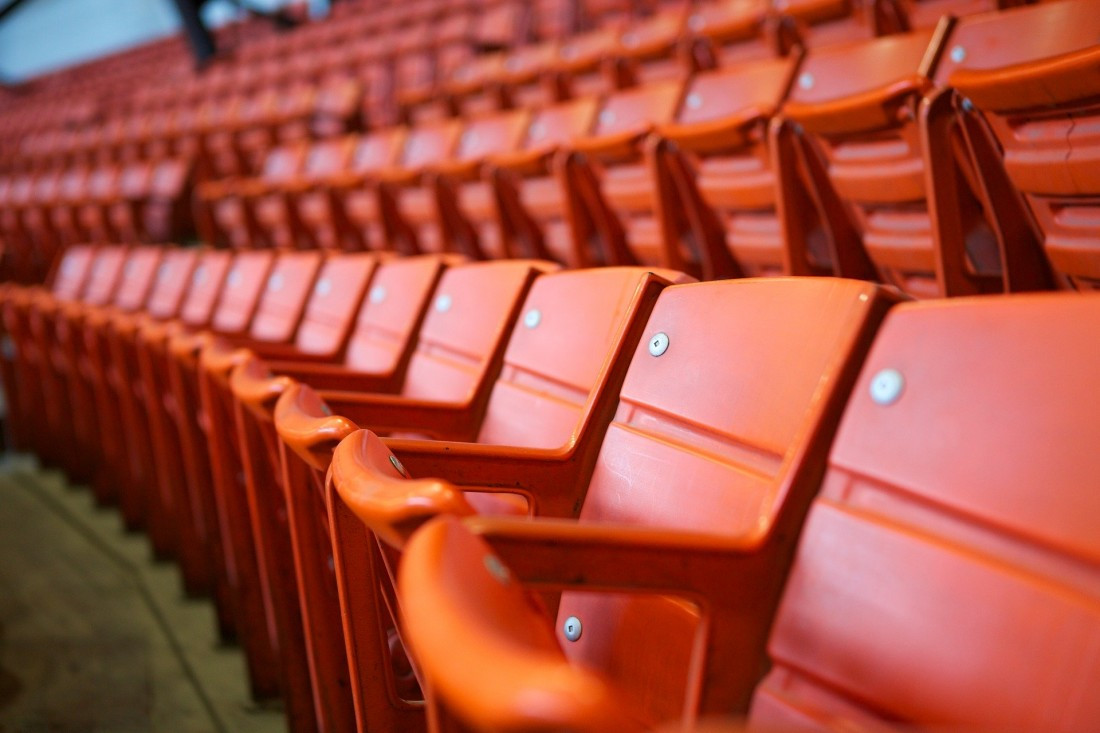It’s a team effort
How COVID-19 has reshaped and strengthened the sports community
I remember looking at my phone and scoffing, in mild disbelief, when my Instagram feed suddenly filled with posts about the NBA suspending their season after a player tested positive for the novel coronavirus. That was back in March, and now, sports as we knew them no longer exist.
My reaction had nothing to do with the NBA’s decision, which I fully supported. Fans, however, immediately took to their keyboards to complain about the move. The suspension, some argued, was enacted too soon. After all, what would they do while sheltering in place without a playoff race on TV?
As a former diehard sports fan, I understand their devastation. It’s similar to what I felt when I realized I’d have to miss most of a New Year’s Eve World Junior Championship match to attend my cousin’s wedding a decade ago. But in the time since then, sports have taken on an entirely different role in my life.
I spent my early 20s fulfilling a lifelong dream of working in sports media, and I’m now married to a professional athlete. The start of each new Winnipeg Goldeyes baseball season means I’m reunited with my American partner (who lives south of the border during the winter), along with all the other players, fans and employees who have become my second family.
When this year’s American Association season was postponed, I realized those seemingly entitled and whiny fans on Instagram had a point. The lack of ball games – whether they happen on a court, field or pitch – is about more than simply not being able to see your favourite player reach a new career milestone or send a hometeam to the championship. It’s about a loss of community.
Without sports, some families are no longer gathering around basement TVs to cheer on the Winnipeg Jets. Friends aren’t messaging each other to facilitate fantasy team trades. Colleagues aren’t bonding over the buzzer-beater they witnessed the night before, and season ticket holders aren’t reconnecting with their seatmates.
But much more importantly, employees across practically every league are now laid off. Students who expected to work summer jobs at places like Shaw Park are now scrambling to find other options. Many athletes (especially those who don’t collect millions of dollars in endorsement deals and contract extensions) don’t know how they’ll support themselves and their families. In my case, pandemic-related border closures and precautions mean I haven’t seen my partner or inlaws for half a year.
COVID-19 has touched amateur and youth sports, too. High-school students across the city weren’t able to complete playoffs when social distancing protocols cut their seasons short. Stanford University recently announced plans to cut 11 varsity sports, and many parks and workout facilities remain closed to the public.
But while play-by-play announcers’ pipes may be a little rusty after months off work, many athletes’ voices seem stronger than ever. Superstars like Coco Gauff, Russell Wilson and Kia Nurse have used their platforms to support the Black Lives Matter movement and speak out against police brutality and systemic racism.
Jumbo Jet Dogs, ballpark peanuts and overpriced pints might be in short supply lately, but that sense of community fans longed for back in March is still here – and I’d argue it’s stronger than ever. Instead of banding together in pursuit of a pennant, teams and their supporters are joining forces to try and accomplish a much more impressive feat.
During the few months that most sports have been off the air, Washington’s NFL team finally decided to change their racist name and mascot, and other teams across the continent may soon follow suit. Despite what a certain Fox News host might prefer, athletes are increasingly choosing not to “shut up and dribble.”
I don’t blame them. We’re talking about matters of life and death here, whether that means protesting against racist policing practices or defending an individual’s own well-being.
Over the past few days, the basketball community has rallied behind Elena Delle Donne, a WNBA player who lives with Lyme disease. The league recently denied her opt-out request, and she now has to decide whether she’ll play and risk her already-precarious health or forfeit her paycheque.
This is a far cry from the season she – or any other professional athletes – likely expected. I certainly didn’t think I’d be (mostly) holed up in my downtown apartment instead of travelling to different ballparks across the Midwest. As the NBA says in their latest marketing campaign, this pandemic has truly created a #WholeNewGame – and it’s also resulted in a much stronger community.
Danielle Doiron is a former sports reporter, commentator and team media representative. She now works as a freelance writer, editor and marketer in Winnipeg.
Published in Volume 74, Number 25 of The Uniter (May 1, 2020)







